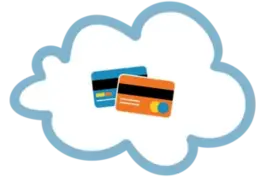When sourcing products, many business owners turn to China and other East Asian markets. Chinese-made products accounted for over 35% of domestic American imports in 2022 [1]S&P Global Market Intelligence. “Sourcing shift from China pulls US import share to more than a decade low“. Accessed On August 13, 2024.. Given this significant market share, it’s no surprise that entrepreneurs often look to platforms like Alibaba and AliExpress for their sourcing needs. Both platforms, owned by the Alibaba Group, have become increasingly popular options for businesses seeking affordable suppliers.
Both Alibaba and AliExpress serve as marketplaces for low-cost goods. As such, both are practical options for eCommerce entrepreneurs needing affordable suppliers. That said, merchants should know that both platforms offer markedly different services. Alibaba is generally a better fit for businesses that typically purchase large volumes at wholesale prices. Meanwhile, AliExpress offers smaller order volumes and direct-to-consumer sales.
Whether building a dropshipping business or expanding an existing eCommerce enterprise, suppliers will be integral to your business’ success. Still, sourcing high-quality products at reasonable prices remains challenging for many online entrepreneurs.
So, which of these platforms do you choose? It’s an important question worth considering with tact, thoughtfulness, and foresight. After all, settling on the right eCommerce platform can significantly affect overhead costs, fulfillment timeframes, and customization options, among other factors. In the following guide, we’ll get into the features of both Alibaba and AliExpress, the pros and cons of each platform, and which one you should choose for YOUR business needs. Read on if you’re looking to get started in the eCommerce sphere!
Alibaba vs AliExpress: How Do They Work?

Alibaba and AliExpress are marketplaces that connect buyers with sellers. Both platforms’ home sites contain various available products, including electronics, jewelry, furniture, workout equipment, and more. Buyers can connect with sellers on both platforms by ordering samples and requesting quotes.
So, what makes Alibaba and AliExpress different? It comes down to the type of buyer each platform attracts. Alibaba provides B2B supplier and buyer relationships, meaning buyers can access wholesale prices if they order at a specific required purchase volume. In other words, we wouldn’t recommend Alibaba to everyday consumers or for small orders in general.
On the other hand, Alibaba offers a direct pipeline for low-cost goods to reach consumers (or businesses desiring minimal-volume orders) with no fuss. While AliExpress is undoubtedly affordable compared to other, more prominent domestic suppliers, Alibaba offers wholesale prices that can’t be beaten.
What Is Alibaba?
Alibaba is a B2B marketplace offering a range of products at wholesale prices. While Alibaba is connected to the Chinese manufacturing industry, on the American side, it is an English-language portal for connecting wholesale sellers with buyers.
Upon first arriving on Alibaba.com, users can browse various product categories or search more intentionally for specific items. When selecting a product, buyers can place an order, request a sample, contact the seller, or simply view specifications.
Similarly, Alibaba.com users can develop an RFQ or Request for Quotation. Using an RFQ, your business can outline order details—such as product, customizations, and order volume—and suppliers then provide quotes for the contract. While suppliers are known to advertise their pricing, it is possible to negotiate for a more advantageous rate.
Alibaba was founded in 1999 by the Alibaba Group, which now owns and controls enterprises in various sectors, including media, payment processing, cloud computing, and more.
What Is AliExpress?
True to its name, AliExpress aims to be an “express” version of the standard Alibaba platform. Alibaba launched AliExpress.com in 2010 to tap into a market of buyers unwilling or unable to purchase large product volumes [2]The Guardian. “Alibaba leads the charge for China’s internet expansion overseas“. Accessed on August 13, 2024.. With AliExpress, there are typically no minimum orders. However, while AliExpress claims to offer customers wholesale pricing, the platform is more expensive than what Alibaba offers. To that end, AliExpress buyers are not able to negotiate on pricing.
However, while AliExpress may lack Alibaba’s flexibility in that regard, it has the edge regarding ease of use. Placing an order with AliExpress is remarkably easy: there are no options for negotiation or customization, so the checkout process is streamlined and straightforward, with an easy-to-use shopping cart and assorted payment options.
AliExpress has established itself as a premiere destination for dropshipping businesses. The “AliDropship” app is compatible with Shopify and other alternative eCommerce platforms, making automating orders and fulfillment simple and stress-free. Buyers benefit from various payment options, including transfers and leading U.S. credit cards.
Alibaba: Advantages And Disadvantages
Let’s explore the pros and cons of using Alibaba:
Pros
- Extensive Manufacturer and Product Base: A cursory glance at Alibaba.com’s concentrated supplier platform only shows how many products are available through global sellers.
- Wholesale Pricing: If you want to increase your profit margin, you can take advantage of Alibaba’s affordable wholesale pricing, especially if you purchase large product volumes.
- No Monthly Fees: Buyers on Alibaba are charged no monthly membership fee and only pay to use the platform via purchase commissions.
- Private Label Products: Alibaba allows buyers to develop custom, private-label products. Sellers offer many customization options, allowing businesses to create products defined by unique branding.
- Interest-Free Financing: In 2020, Alibaba began offering interest-free financing to some small businesses [3]Banking Dive. “Alibaba rolls out interest-free financing for small businesses“. Accessed on August 13, 2024.. Eligible buyers can delay invoices up to 60 days after initial shipment, though some purchases may require a deposit. Sellers must pay 2.20% to access this option.
Cons
- Minimum Order Volumes: A decent number of Alibaba suppliers have minimum order numbers, making accessing small order volumes challenging.
- Long Delivery Timeframes: Shipments departing from China and other overseas ports can have long and occasionally unreliable delivery times. Alibaba merchants must be willing to work with slower fulfillment windows than domestic manufacturers.
- Less Legal Recourse: While Alibaba has “Alibaba Trade Assurance” and other means of protecting buyers, there is less legal recourse available to businesses within the United States. Unscrupulous manufacturers can send shoddy products, disappear without warning, or engage in otherwise underhanded or dubious business practices.
- Not Suitable for Dropshipping: While Alibaba recently introduced a dropshipping platform, AliExpress remains an ideal option for developing a dropshipping business.
- No Seamless Checkout Process: As Alibaba buyers often negotiate based on volume and price, there is no seamless “shopping cart” option to guarantee a convenient checkout process.
AliExpress: Advantages And Disadvantages
Now, let’s get into the pros and cons of AliExpress:
Pros
- No Minimum Order Volumes: Buyers can purchase any product volume on AliExpress, even a single product.
- Excellent for Dropshipping: AliExpress has a high-grade dropshipping platform that integrates with Shopify and other popular eCommerce solutions, thus making processing orders and shipping products without manual assistance easier than it might otherwise be.
- Customer-Oriented Checkout Process: Unlike Alibaba, checking out on AliExpress is quick and easy. Buyers can add products to a shopping cart and proceed to verify and complete purchases using their payment method of choice.
- Excellent Pricing: AliExpress offers cheaper product prices than many U.S.-based suppliers. Such affordability makes it a worthy choice for businesses hoping to save money on product sourcing.
Cons
- More Expensive Than Alibaba: AliExpress offers low rates on individual products, but buyers will only begin to save once they order wholesale volumes.
- Prices are Pre-Determined: There is no such thing as negotiation with AliExpress—you pay the price listed on the seller’s product page, and that’s that. This rigidity can also make creating long-term relationships with suppliers difficult.
- No Customization Options: AliExpress doesn’t usually let buyers customize products or add logos.
- Slower Shipping Than U.S. Dropshipping Fulfillment Centers: While some AliExpress sellers have U.S.-based fulfillment sellers, many products arrive from overseas. It can take weeks, even months, for products to reach your customers, which could result in a blowback toward your dropshipping business.
Alibaba vs AliExpress: Business Model Similarities And Differences

Minimum order requirements
One of the primary differentiating factors between Alibaba and AliExpress is the minimum order requirements for each platform. Alibaba’s minimum orders vary depending on the supplier, though many have minimum order volumes in the hundreds. Conversely, AliExpress buyers can order any volume, including single items (which is only one of the reasons the platform is so popular with drop shippers).

Payment options
Alibaba and AliExpress offer a broad range of payment options, making it easy for buyers to complete transactions via their preferred payment method. With Alibaba, buyers can purchase products using credit cards, debit cards, online transfers, wire transfers, Western Union, and Apple Pay. With AliExpress, customers can use AliPay, credit cards, debit cards, and bank transfers, to name just a few options.

Price comparison
Alibaba is the king of affordable pricing. While AliExpress is much cheaper than many American suppliers, the company doesn’t offer genuine wholesale prices — you can only access wholesale prices at Alibaba. As previously discussed, this is due to the considerable minimum order requirements that Alibaba demands of its users.

Lead time for orders
Lead time for orders depends largely on the supplier and any customizations the merchant requests; it can take weeks before shipment is set into motion. AliExpress products are generally pre-made. The advantage of this is that the supplier can ship the product right away.

Order customization
Many of Alibaba’s suppliers offer product labeling, customization options, and other benefits for buyers needing unique specifications. Alibaba lets users add logos, customize features, or even revamp products from the ground up. AliExpress lacks private labeling options, meaning the platform only makes sense for merchants who are okay with purchasing existing designs.

Wholesale options
Naturally suited for small orders of pre-made goods, Alibaba is the ideal option if buyers desire access to wholesale product orders. Alibaba offers wholesale pricing, and its sellers can also handle large custom orders.

White-label and private-labeling options
Alibaba also offers its users a private labeling option. Merchants can find plenty of high-quality manufacturers on the platform to customize products with particular designs or branding specifications. However, most AliExpress sellers only offer white-label products distinguished by relatively generic branding.

Product availability
Alibaba and AliExpress both have expansive, far-ranging product lists. Most suppliers have direct links to manufacturers and can handle large order volumes, so merchants no longer have to worry about which products are available.

Shipping cost and time
Usually, standard delivery timeframes can take up to forty-five days with both platforms, though some of this will depend on the seller’s location. However, it should be noted that AliExpress offers a ten-day shipping guarantee on specific products and a premium shipping option that ensures delivery of products in as little as seven days. The shipping timeframes for both providers are generally less reliable than other U.S.-based fulfillment centers.

Certification
Any longtime business owner will tell you that working with sellers you trust is essential to any serious business practice. The Alibaba Verified Supplier program provides an extra layer of security for buyers by verifying that a seller is, in fact, legitimate. To enroll in Alibaba’s Verified Seller program, sellers need to pass certain on-site verification checks and meet other standards and requirements.
While AliExpress does not boast a similar program, it does allow buyers to explore customer feedback and ratings to ensure that the seller they’re doing business with has a trustworthy track record.

Dropshipping options
Among its eCommerce contemporaries, Alibaba isn’t the most compatible with the dropshipping business model. With minimal order requirements, only a handful of dropshipping suppliers offer single-product orders. In addition, purchasing something on Alibaba is relatively complex. There are negotiated rates, order volumes to decide on, and customizations to request. In other words, it’s a whole process. While Alibaba recently introduced its dropshipping program, the platform is more ideally suited to buyers looking for reliable wholesale suppliers.
AliExpress, on the other hand, is more harmonious with dropshipping as a practice. Customers can order single products, meaning the whole process is simpler overall. There is also AliDropship, a dropship-specific platform that integrates with Shopify and other leading eCommerce platforms to streamline dropshipping orders and deliveries. Merchants should note that delivery times can render dropshipping somewhat prohibitive since fulfillment often occurs overseas.

Ease of use
Both Alibaba and AliExpress are geared toward English-speaking buyers, which puts them in a novel position: they serve as places where English-speaking merchants can easily buy goods from overseas.
However, purchasing from Alibaba requires customers to negotiate rates and request quotes. This is done to clarify important parts of the purchasing process. This notion holds especially true if there is a language barrier, i.e., the supplier cannot speak fluent English. In addition, the site itself isn’t as buyer-friendly as more popular American marketplaces like Amazon or eBay.
With that in mind, adjustment may take time. On the other hand, AliExpress is an undeniably user-friendly service, with a hassle-free checkout process that allows buyers to purchase orders of any size.

Customer service
When you shop online on Alibaba and AliExpress, you deal primarily with the marketplace and the supplier. If issues arise, the supplier is the first person you want to speak to. However, customer service varies from supplier to supplier. It all depends on how focused they are on resolving the issue.
Should you need additional support, there are forums available for both Alibaba and AliExpress. Likewise, buyers can use a live chat portal to speak to a customer service representative about any issues. Unfortunately, neither marketplace has a phone support option.
AliExpress vs Alibaba: Customer Reviews
Neither AliExpress nor Alibaba can claim to have the most positive online reviews. Customers have expressed dissatisfaction with unreliable suppliers, fulfillment timeframes, and other dilemmas. However, this is not to suggest that the reviews for both platforms are all doom and gloom and complaints. Many glowing notices praise both platforms’ excellent product offerings and consummate professionalism.
Below, we will explore a few of the shared issues some eCommerce businesses face when using Alibaba and AliExpress:
- Communication Issues: English is often not the first language of many Alibaba or AliExpress suppliers. This can challenge basic communication, leading to misunderstandings regarding specific products.
- Incorrect Products Sent: Some buyers have complained about receiving the wrong items or items they didn’t order. This could result in problems for drop shippers, who often rely on AliExpress for correct fulfillment.
- Delays in Fulfillment: Sometimes, customers have spoken out about delivery, delays, and other fulfillment issues. This is why you are technically rolling the dice when working with suppliers from China and other overseas territories: the variables of shipping and receiving are far more challenging to control in this context.
- Low-Quality Products: Customers have occasionally cited the inferior quality of certain products, claiming they don’t match the initial samples provided upon the merchant’s agreement to purchase the item or items. This is why it’s always best to consistently test the products you receive to ensure you know what you’re paying for.
Tips For Buying Wholesale From China Safely
You may be apprehensive about working with producers in China if your business is relatively new to sourcing products directly from wholesale suppliers. We would be remiss for not mentioning that sourcing products from overseas can be risky, as these suppliers do not exist within American jurisdiction. The counterpoint to that argument is that China is home to some of the finest manufacturers in the world. Working with Chinese suppliers offers business owners access to robust order volumes, fair pricing, and many other benefits. Many American businesses use Alibaba because the virtues outweigh the risks.
Below, we will explore some tips that will guide you in terms of safely purchasing wholesale products from China:
Don’t go all in
Test the waters before making any serious commitments. Start with a sample and a small order. As you build trust with your supplier, please increase the order sizes. In short, never risk substantial capital on your first order with an overseas supplier.
Read supplier information
Alibaba hosts information about suppliers and their assorted track records. For example, you can view a supplier’s average response times, transaction totals, on-time delivery rate, the amount of time they’ve been in business, and other information that will be critical in helping you make an informed decision.
Don’t over-rely on Alibaba Trade Assurance
Alibaba Trade Assurance is a program designed to protect buyers from shoddy products or undelivered items. If you don’t receive an item or if it is not of the same quality described by the supplier, you can file a complaint and receive a mediation or possibly a refund.
While this program provides users with an added layer of security, it is decidedly not a replacement for due diligence. Always do your homework and research your supplier before saying “yes” to a large order. In situations such as these, going the extra mile pays off.
Understand shipping timeframes
Your supplier, however reputable, does not control the shipping process. If a global event causes widescale disruptions, you may face further delays in product shipments.
Always confirm quality
Finally, always take the time to confirm the quality of your product. Do this routinely and often. You must perform tests with each batch of products you receive to ensure your customers can access well-made, reliable goods.
Find Multiple Suppliers That Offer Your Desired Products
Regarding suppliers, you don’t necessarily want to choose the first option in AliExpress or Alibaba’s search results. Compare and contrast multiple suppliers. Find out what you’re looking for and who can supply you with what you need.
Let’s explore some tips for comparing suppliers:

Reach out to get quotes
Start by contacting multiple suppliers for quotes. Receiving estimates from manufacturers in your niche will help you gauge the average price. The lowest price doesn’t always translate to the best deal — the merchant should always consider quality and supplier reputation.

Get product samples
Always request product samples before placing an order from an overseas supplier. Many suppliers will offer free samples as a courtesy, though you may or may not have to cover the shipping cost. Regardless, this is a reliable tactic for inspecting and testing a product to ensure that it meets the standards outlined in the original product description.
Final Thoughts On Alibaba vs AliExpress
After weighing the pros and cons of Alibaba and AliExpress, it’s time to determine which platform is best for your needs.
The right choice is contingent on your business requirements. If you’re accustomed to ordering large volumes of custom products, Alibaba is likely the better option. On the other hand, if you’re starting a dropshipping business or purchasing items for personal use, AliExpress may be the safer bet.
No matter which platform you choose, it’s crucial to exercise good judgment. Users cannot access standard legal recourse if they encounter shipping issues. Those purchasing significant volumes at wholesale prices should thoroughly vet suppliers before placing orders. Building trust over time can help minimize the risk of financial loss.
Whether you’re running a dropshipping business or sourcing products for a custom brand, mastering the intricacies of selling online is crucial. Equally important is building a robust online presence. You can connect your world-class eCommerce store to a global audience by partnering with a reliable merchant service provider. PaymentCloud can assist you in setting up an eCommerce merchant account, ensuring seamless and secure transactions as your business grows.
AliExpress vs Alibaba FAQs
Is it safe to buy from Alibaba and AliExpress?
There are inherent risks involved in purchasing from both Alibaba and AliExpress. As outlined in this post, you are technically sourcing products from overseas, which translates to minimal regulation and a margin for uncertainty. However, it speaks to the reputation of both platforms that American businesses, both large and small, have sustained successful long-term relationships with Alibaba and AliExpress. Despite their flaws, these platforms remain enduring resources for sourcing goods. To minimize risk, request samples (if possible), read as many reviews as you need to make an informed decision and do any other necessary research before forging a partnership with a supplier.
Who owns AliExpress and Alibaba?
AliExpress and Alibaba are two brands owned by the same parent company, the Alibaba Group. The Alibaba Group also owns other businesses besides the two discussed in this post, including the payment platform Alipay.
AliExpress or Alibaba, which is cheaper?
In weighing Alibaba vs. AliExpress, Alibaba is the more cost-effective platform. However, Alibaba allows merchants access to wholesale prices, not just smaller orders at higher prices. Users who wish to access Alibaba’s best prices must order a significant volume of goods.
What is an RFQ?
RFQ stands for Request for Quotation. With an RFQ, a buyer uploads information about a desired order, including quantity, product details, fulfillment deadlines, and other pertinent factors. Sellers can then respond with requisite quotes, making it a terrific tool for soliciting quotes from multiple sellers.
How do AliExpress and Alibaba differ from Amazon?
AliExpress, Alibaba, and Amazon are all online marketplaces. However, the resemblance begins and ends with readily apparent similarities.
Alibaba is a wholesale supplier marketplace, meaning the platform is a B2B supplier network through which merchants can order high volumes at wholesale rates. While AliExpress allows for smaller orders, it ultimately charges a higher premium. Amazon, like AliExpress, offers direct-to-consumer orders instead of wholesale pricing, although it primarily fulfills its sales from within the United States.
Alibaba and AliExpress serve as the link between producers and direct suppliers. Most of the infrastructure is based in China and other parts of Asia, resulting in longer shipping timeframes. On the contrary, Amazon is a more expensive premium service whose influence extends beyond shipping, ordering, and receiving products.
Is it easy to place an order on Alibaba and AliExpress?
It is easy to place orders with both Alibaba and AliExpress. However, AliExpress has the advantage of its convenient, easy-to-navigate checkout process. AliExpress sells goods directly to consumers, meaning users don’t need to busy themselves with the minutiae that comes part and parcel with wholesale orders. While both platforms prioritize convenient checkout, they can’t compete with the more seamless alternatives offered by comparatively renowned online marketplaces like eBay and Amazon.
What is Alibaba Trade Assurance?
Alibaba Trade Assurance is an Alibaba-endorsed program designed to protect buyers from financial repercussions related to undelivered products or products failing to meet expected quality levels. If you buy products on Alibaba and experience issues with fulfillment, you can file a complaint within thirty days, after which Alibaba will help mediate the case. If the problem is deemed unresolvable, Alibaba may also refund you.
However, while Alibaba Trade Assurance is a valuable resource for protecting oneself against rogue suppliers, your business must still perform due diligence on products and suppliers. Alibaba Trade Assurance isn’t foolproof — it’s simply a tool, an additional measure. At the end of the day, your business must still undergo a mediation process. The outcome is never guaranteed to work in your favor, so plan accordingly.







